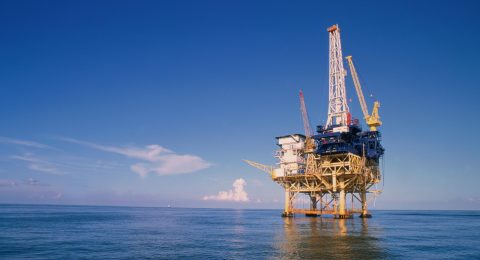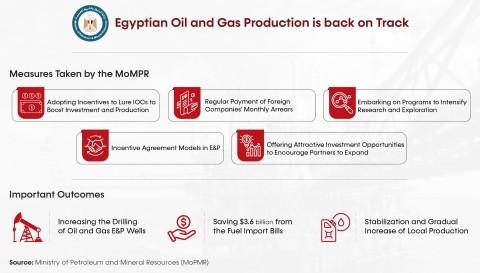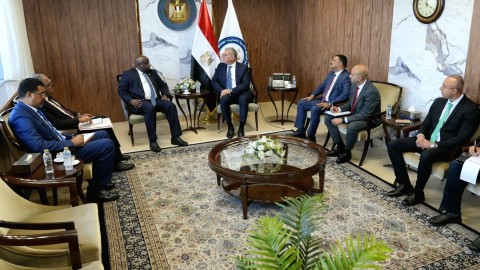South Sudan hopes to resume oil production in September after reaching an interim agreement with Sudan on oil export fees, but it may take a year to return to full capacity, its top negotiator said on Tuesday.
The two countries agreed on Friday on how much South Sudan should pay to export its oil through northern pipelines, ending a dispute that led to the shutdown in January of South Sudan’s output of 350,000 barrels per day.
The deal marked a step towards ending hostilities between the African nations, which came close to a war in April when border fighting escalated in the worst violence since South Sudan became independent a year ago.
Sudan still wants to reach an agreement on border security, however, before allowing its landlocked neighbor to export oil through its territory. Both nations need to mark their 1,800 km (1,200 miles) border, a tricky issue since much of it is disputed.
Pagan Amum, South Sudan’s lead negotiator with Sudan at the African Union, said oil production would restart around September, especially in the Upper Nile state fields which contributed to much of the country’s previous output.
“We’re expecting to begin production immediately in September, especially for the Upper Nile oil, of Dar Blend,” Amum said in an interview in South Sudan’s capital.
“We expect, of course, to develop the capacity in time. It will not just be an automatic thing. It will take time to open one well after the other,” he said.
“The production will begin from 150,000 (bpd)… and within three, four months, it would go to 180,000, 190,000 (bpd), and then it will go to the (old) level, and possibly higher than the time (before shutdown) within one year,” he said.
Oil is the lifeline of both economies, especially of the war-torn South where it made up 98 percent of state income. Sudan is also suffering, with protests springing up against rising food prices as the government struggles to fund imports.
Industry sources said it might take six months to fully resume production, because the pipelines were filled with water to avoid gelling and some wells were not closed properly.
China was the biggest buyer of South Sudanese oil before the shutdown, and Chinese state firms are the biggest oil operators in the world’s youngest nation.
BORDER SECURITY
Both countries plan to resume talks in Addis Ababa at the end of August to agree on their border and improve border security. Little progress has been reached so far as both sides accuse one another of supporting rebels in the other’s territory.
Amum said South Sudan was ready to reach a security deal to establish normal relations and cross-border trade with Khartoum, which the South had fought during decades of civil war.
Striking a more optimistic tone than late on Friday when the oil deal was announced, Amum said: “We’re aiming at a comprehensive deal … We will establish the demilitarized zone, we will deploy monitors.”
He added, “We will ensure full compliance by the two countries of non-interference in the affairs of the other.”
Juba accuses Sudan of often bombing its territory.
Sudan accuses Juba of supporting rebels of the Sudan People’s Liberation Movement (SPLM-North), who are fighting the Sudanese army in the two border states of South Kordofan and Blue Nile.
Amum denied that allegation but admitted that South Sudan showed what he described as “solidarity” with the group.
“As people of South Sudan, we’re in solidarity with all the marginalized groups in the world, and the marginalized groups in Sudan. It’s solidarity. It’s solidarity. It takes all its forms,” he said.
The SPLM-North is part of an alliance with rebels from the western region of Darfur, which want to topple Sudan President Omar Hassan al-Bashir.
Amum said Juba preferred that the SPLM-North talk directly to Sudan but wants a “just solution” for them. The rebel group is composed mainly of people who sided with the South during civil war and were left in the north after the southern secession.
Amum said a comprehensive deal with Sudan would also call for a referendum for the disputed border region of Abyei and the right of return of the Dinka tribe, which is allied to Juba.
More than 100,000 people, mostly Dinka, fled when Sudan seized Abyei in May 2011 after an attack on a Sudanese army convoy that the United Nations blamed on the southern army.
Source: Reuters











